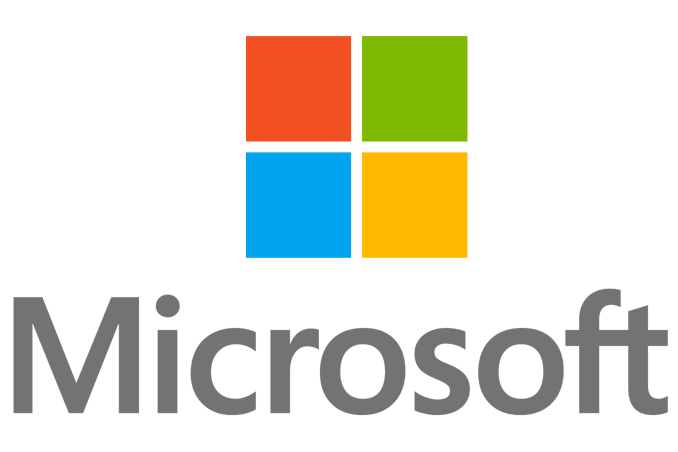Microsoft is aiming to create over 100,000 job opportunities and reach over seven million people across the Middle East and Africa by the end of the year through its Employability Platforms, in partnership with organisations from public and private sectors, as well as NGOs. Launched in 2012, the YouthSpark Employability Platform for the first time provides job-seekers with end-to-end career guidance, upskilling, job-matching and mentorship – all centred on a free online hub that brings the best resources together in a bold attempt to address unemployment and underemployment.
In the MENA region the platform is called Ta3mal (“works” in Arabic) and is a partnership between Microsoft and Silatech, a non-profit organization supporting youth access to employment across the Arab world.
“Unemployment in Africa and the Middle East is not a new issue, but its scope is growing with the youth bulge and economic downturn worldwide and we need to find new solutions to address this problem,” says Ali Faramawy, Corporate Vice President of Microsoft Middle East Africa (MEA).
Microsoft’s solution, in the form of its Employability Platforms, has landed in markets including Egypt, Morocco, Tunisia, Iraq, Qatar, Côte d’Ivoire, Nigeria, Kenya, South Africa, Botswana, Algeria, Ghana, Palestine and Turkey and will expand to 21 countries across MEA including Tanzania, Pakistan, Mozambique, Angola, Zimbabwe, Madagascar and Mauritius. To date, the YouthSpark employability platform has reached 5.8 million youth with a target of reaching 7 million by the end of FY15. In addition, 69,000 job opportunities have been posted on the job search tool against 100,000 job openings goal to be reached by the end of the year.
Silatech Chief Programs Officer Martin Roeske commented on the partnership, saying “The Ta3mal network of Employability Platforms across MENA shows what we can do when NGOs and the private sector join strengths and resources together to achieve real impact.”
“Part of the unemployment problem is caused by a lack of economic opportunity, as well as the fact that graduates from secondary and tertiary institutions lack the skills required by employers,” says Faramawy. “But there is no shortage of determination and even in a country like Iraq that has been faced with some dire situations, our platform has helped put 30 000 youths into jobs in the past 14 months.”
Microsoft’s solution is not only to provide access to job opportunities to interested youth, but to define pathways through which to equip them with the necessary skills, including soft skills, to land and hold onto these jobs. “Job seekers need to be equipped with skills like how to write up a CV, have a successful interview and how to dress in the workplace, which is why we have included videos, articles and courses of this nature on the platform along with the more competency based courses,” comments Faramawy.
Retention is also higher when graduates are in jobs matched to their aptitudes and career ambitions. This is why the first step on the platform is a series of tests, to help each user to determine their strengths as well as areas of improvement. Based on that, they can decide from a selection of 1000 courses on the platform they should sign up for in order to improve their skills in their areas of interest including entrepreneurialism. “We also focus on helping entrepreneurs simply because there aren’t enough jobs to go around so people need to know how to self-employ and perhaps even employ one or two others,” explains Faramawy.
Once users have been upskilled, the Employability Platform connects them with professional and entrepreneurial opportunities. To achieve this, there is a mentoring function allowing users to connect with volunteers around the world to receive informal guidance from experts, while a ‘job posts’ function presents them with suitable positions in the private sector, with a special focus on those youth with little to no professional experience.
“There are lots of employment resources out there for youth, but the great thing about the Employability Platform is that it offers one central space where users can find out what they’re good at, take courses to upskill, speak to people in their desired industry and view jobs in that industry,” comments Faramawy.
Accounting student at Damanhour University in Egypt, Mostafa Baragheet, made use of ‘Masr Ta3mal’ – Egypt’s Employability Platform – when extra-curricular courses became too expensive. After taking a personality test and taking part in a career consultation session, he signed up for accounting and business management courses through the platform. “With the guidance of Masr Ta3mal’s consultant, I was able to help myself without spending any money, and I gained the confidence to start my own company.”
Faramawy calls the Microsoft Employability Platforms “a solution in a box that can be tailored locally.” The target audience is not specifically university students, but simply young job-seekers across MEA needing the tools to take the step into the working world. Microsoft views itself as the solution provider, and relies on government, NGOs, universities, vocational schools and the private sector to bring the platform to life.
“The young minds of MEA are amazing incubators for new ways of thinking. But we also have to develop new ways of thinking when investing in their development if we are to help the next generation fulfil its potential.”

